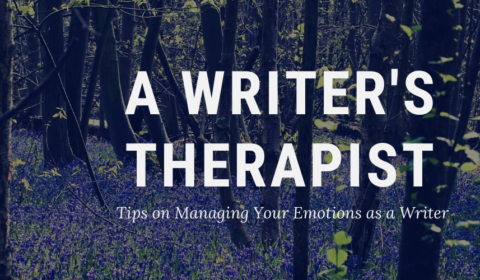
Full disclosure here. A professor once told me I’d be a professional student and I didn’t prove him wrong. I still take oodles of writing courses from the comfort of my home. And one thing I’ve been hearing a ton from literary agents are all the true and shocking stories of writers who write obnoxious things in response to their rejection letters.
Please if you’re a reader here, new or old, do not end of being one of those writers.
I know I’m guilty of hitting the reply button too soon, but accusing agents of not reading my work or insulting their tastes are all things I’d never do.
When I hear that, though I’m thinking about that writer.
A writer who is quick to anger and responds without tact is a writer who needs help. I’m talking about their emotional health here. While it’s normal to feel angry and you might even feel a tad bit vindictive, it’s not okay to react on it. Save those eruptive feelings for your prose. It’s your job to be professional and that means working out the emotional stuff with a friend, therapist or on your own.
If you found me on the internet cause you’re stewing about the latest dig from your editor or critique partner, I’m so grateful you landed here because I got tips to work through it.
Anger isn’t a bad thing. What you want to avoid however, is expressing or repressing it. You might be asking yourself what else is there if you’re not telling that agent off or stuffing down your feelings with Oreos? I learned from a course called Living from a Place of Surrender: The Untethered Soul in Action taught by Michael A. Singer that there is a third option. He says emotions can be transmuted. Basically that means transform it.
 If that sounds as likely as elves, unicorns and magical wands, stick with me. Learning ways to use emotions is something I do best. Otherwise I would not still be submitting my manuscripts, a 100 submissions later.
If that sounds as likely as elves, unicorns and magical wands, stick with me. Learning ways to use emotions is something I do best. Otherwise I would not still be submitting my manuscripts, a 100 submissions later.
The key is you need to first feel whatever you’re feeling while resisting the urge to express it. This means you can go for a run. You tell a friend or your trusty journal how pissed you are that the editor didn’t seem to care about the years you spent cracking the code of a perfect query. You can even sit and listen to all the angry words that flow through your mind. But just let it go. Don’t try to change it. Don’t try to distract from it. Don’t take it out on that editor, your kids or the dog. Just listen to the little tyrant that exists inside and is ready to be heard.
Got that all out? Good.
Maybe you’re still angry or even more so. Or maybe the angers calmed a bit and you learned something from what the anger said. Maybe what it’s telling you is you’re tired of putting yourself out there and not being validated. You’re sick of hearing how all your social media “friends” are getting published. You don’t know if you’re a good enough writer. Maybe you really do suck.
God it’s hard to hear that right? But it needs to be heard so let your anger have it say.
Now here’s the good part.
Can you imagine how hard it is for you to be doing what you’re doing? You are pretty amazing, seriously, to have enough emotional strength to endure the painful path of rejection. And that’s what a writer is isn’t it? Yes a “yes” would be amazing. But you don’t need that to be a writer. You’re already doing it. Every single published writer deals with rejection. And while it’s difficult and probably triggering some middle school rejection, you’re still doing it. Don’t neglect to give yourself an enormous pat on the back for that.
Like really feel the sunshine of the accomplishment of what you’re aiming to do. Most of the time you’re going to receive a rejection. The odds are not in your favor and yet you have enough faith to keep going. Use that. And remember anger is just signaling something needs your attention.
Maybe you’re doing too much. Maybe you’re not balancing out your rejections with enough wins. In this post, I share fun and creative ways that I counteract writer rejection slips.
That’s the way you use anger for good. You let it tell you where you’re off balance, a boundary is being pushed, and what needs your attention. That’s it. It’s not reason to flee or fight. It’s just your inner self saying, “Hey there, this is hard. And I need some help.”
And you’ll do it and use it. That’s how you get back on the horse eloquently without any animals or people getting injured in the process.
![]()
